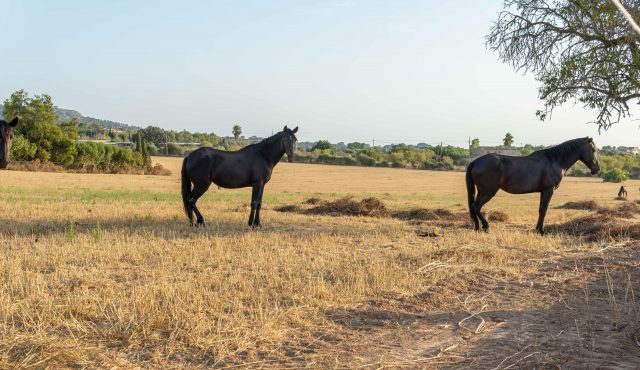
How Drought-Stressed Pastures Affect Your Horses, Presented by Kentucky Performance Products
Much of the U.S. has been experiencing a drought this summer. While most of us poignantly aware of what it does to hay prices, how else does a drought affect your horses? Read on to learn more.
During periods of drought, pasture grass may go dormant while weeds continue to grow. How does this affect your horse?
Grass
- As a defense mechanism to stress, grasses and weeds tend to accumulate more sugar in their leaves. Even though less forage is available, what is present is packed full of sugar and dangerous to sugar-sensitive horses.
Weeds
- The higher sugar levels make weeds more palatable.
- Stressed weeds can also contain higher than normal levels of toxins, which make them more dangerous for horses.
- Weeds are more drought-resistant than grass, so they remain in the pasture when the grass is gone, increasing the likelihood that they will be consumed by the horse.
- Grass and weeds that are rebounding after a drought can be dangerous for the same reasons, which is why many veterinarians report an increase in colic and laminitis cases when rain follows a period of drought.
Fiber
- The foundation of a healthy equine diet is good quality fiber.
- Drought-stressed pastures often provide inadequate amounts of fiber.
- Horses grazing on stressed pastures should be offered additional hay.
- Put out a flake or two and see how much your horses eat.
- If they devour it, then that is a good sign the pasture is no longer meeting their needs.
- Offering hay will make it less likely that toxic weeds will tempt your horse.
How to manage your pasture during a drought
- Don’t overgraze your pasture.
- Give your pasture a chance to recover after the drought is over.
- Check with your local County Extension office about when to fertilize and what types of fertilizer to use.
- Continue mowing to keep the weeds under control.

Click here for a printable version of this infographic.
About Kentucky Performance Products, LLC:
On average, 1 out of every 10 horses will suffer from a bout of colic each year. Managing your feeding program can help reduce colic in horses.
Learn how at https://kppusa.com/2016/02/17/strategies-reduce-colic-horses/
The horse that matters to you matters to us®. KPPusa.com




